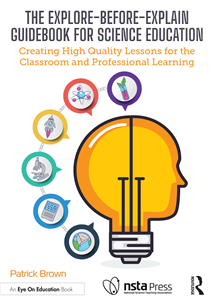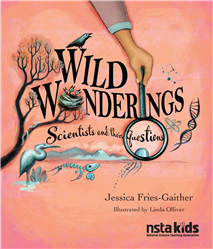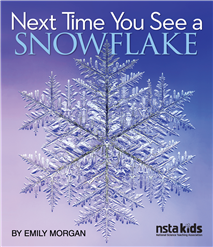All Sensemaking resources
Reports Article
Freebies and Opportunities for Science and STEM Teachers: September 9, 2025
By Debra Shapiro
Reports Article
Freebies and Opportunities for Science and STEM Teachers, August 5, 2025
By Debra Shapiro
NSTA Press Book
This guidebook uses an Explore-before-Explain instructional sequence to help you facilitate the design of active meaning-making lessons in science....
By Patrick Brown
Web Seminar
As science education evolves, the shift toward three-dimensional (3D) teaching and learning—integrating disciplinary core ideas, crosscutting concepts, and science and engineering practices—represents a transformative opportunity for educ...
Web Seminar
Archive: Learn and Lead: What is 3D Learning? Practical Guidance for Leaders, October 29, 2025
Three-dimensional (3D) learning is at the heart of the Next Generation Science Standards (NGSS) and today’s science education reform—but what does it really look like in classrooms, and how can leaders support its implementation system wi...
Web Seminar
This interactive web seminar will begin with an overview of safety protocols specific for doing secondary-level safer science/STEM laboratory activities. The presenters will be Dr. Ken Roy, NSTA and NSELA Safety Compliance Advisor/Specialist and Dire...
Web Seminar
This interactive web seminar will begin with an overview of safety protocols specific for doing elementary level safer science/STEM classroom/laboratory activities with Dr. Ken Roy, NSTA and NSELA Safety Compliance Advisor/specialist and, Director of...
Journal Article
This article shares the experiences of three elementary teachers who took steps to transform their roles from speakers to listeners. After participating in a professional learning (PL) project that uses science to support English language practices, ...
By Michelle Brown, Teila Hildebrand, Taylor Tarone-Sefchik, Allyson Trella, May Lee, Carla Zembal-Saul, Jennifer Cody
NSTA Press Book
Wild Wonderings: Scientists and Their Questions
Click here to view video of Wild Wonderings Let your curiosity run wild! This lively book will inspire you to ask questions like scientists do. Why? Because questions can lead you to amazing discoveries. Like what? Like when theoretical physicist ...
By Jessica Fries-Gaither
NSTA Kids
Wild Wonderings: Scientists and Their Questions
Click here to view video of Wild Wonderings Let your curiosity run wild! This lively book will inspire you to ask questions like scientists do. Why? Because questions can lead you to amazing discoveries. Like what? Like when theoretical physicist ...
Journal Article
This phenomenon-driven unit focuses on students making sense of the mutually beneficial species interactions between legumes and rhizobia. Many science classes spend less time studying the nitrogen cycle due to time constraints and more focus on othe...
By Kerrie Rovito, Lara Smetana, Michael Grillo, Alyssa Hoffman, Sydney DelGhingaro
NSTA Kids
Click here to view video of Next Time You See a Snowflake This book will have you seeing snowflakes in a whole new way. You’ll learn about the science of snowflakes – how they form, why they are six-sided, what conditions are necessary for the...
Journal Article
Beyond Definitions: Using Hexagonal Thinking for Sensemaking
This article was written for the purpose of introducing the hexagonal thinking strategy to upper elementary teachers. The strategy, in which students make connections across the vocabulary and concepts to develop a map, has become more popular in the...
By Simone Nance
Journal Article
This article presents a tool that teachers can use to support children in planning science investigations. Using an extended example from a second-grade investigation into seed dispersal, we describe strategies for structuring conversations that anch...
By Annabel Stoler, Eve Manz
Journal Article
The Framework and NGSS emphasize using lines of evidence to construct explanations and develop arguments that demonstrate understanding about scientific phenomena. For this vision to be actualized in science classrooms, students must engage in invest...
By Kenneth Huff






